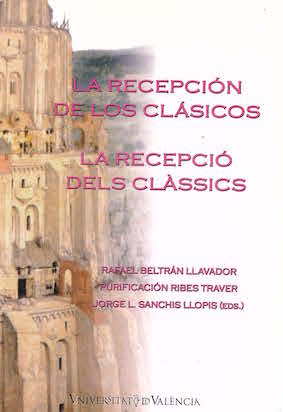La influència de Plutarc a la Primera Part de la Història de València d’En Pere-Antoni Beuter
DOI:
https://doi.org/10.7203/qf-elit.v10i0.5100Keywords:
Beuter, Plutarch, Humanism, Historiography, Valencia Abstract
Abstract
In the 16th century, the canon from Valencia Pere Antoni Beuter wrote some religious works as well as one historical work titled Primera Part de la Història de València. In this work the canon focused his study on 20 chapters, from the first dwellers who inhabited Spain during the Flood until, the city on the Turia river, was conquered by king James I. Therefore, Pere-Antoni used different sources of classical authors for his Chronicle to deal with the Roman Age, as he himself admitted in his prologue. Among these sources we find some Plutarch’s works such as the Lives of Sertorius and Pompeus, and the pseudoplutarchian Life of Hannibal. Hence, our research states that the author of the Chronicle actually knew Plutarch’s work. Furthermore, we have even found out some plutarchian excerpts mentioned in the Lives of Sertorius and Pompeus by the canon from Valencia.
 Downloads
Downloads
Downloads
Published
How to Cite
-
Abstract239
-
PDF (Español)101
Issue
Section
License
 Este obra está bajo una licencia de Creative Commons Reconocimiento-NoComercial-SinObraDerivada 4.0 Internacional.
Este obra está bajo una licencia de Creative Commons Reconocimiento-NoComercial-SinObraDerivada 4.0 Internacional.
Authors who publish with this journal agree to the following terms:
- Authors retain copyright and grant the journal right of first publication with the work simultaneously licensed under a Creative Commons Attribution License that allows others to share the work with an acknowledgement of the work's authorship and initial publication in this journal.
- Authors are able to enter into separate, additional contractual arrangements for the non-exclusive distribution of the journal's published version of the work (e.g., post it to an institutional repository or publish it in a book), with an acknowledgement of its initial publication in this journal.
- Authors are permitted and encouraged to post their work online (e.g., in institutional repositories or on their website) prior to and during the submission process, as it can lead to productive exchanges, as well as earlier and greater citation of published work (See The Effect of Open Access).




